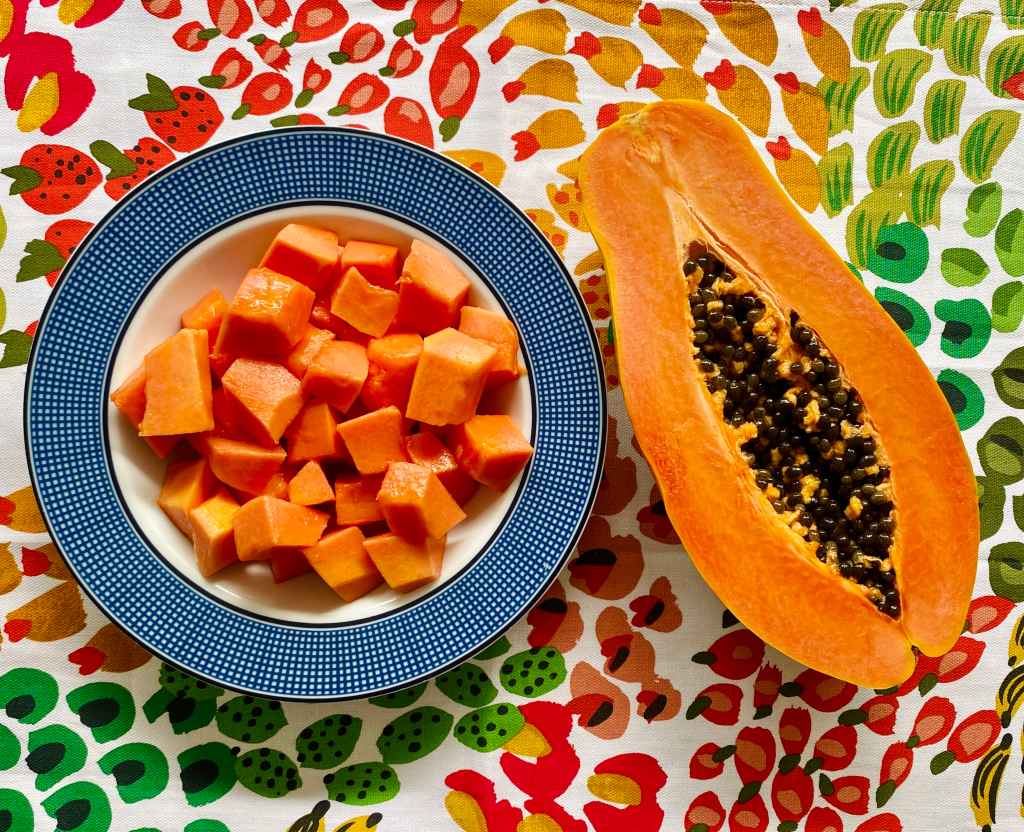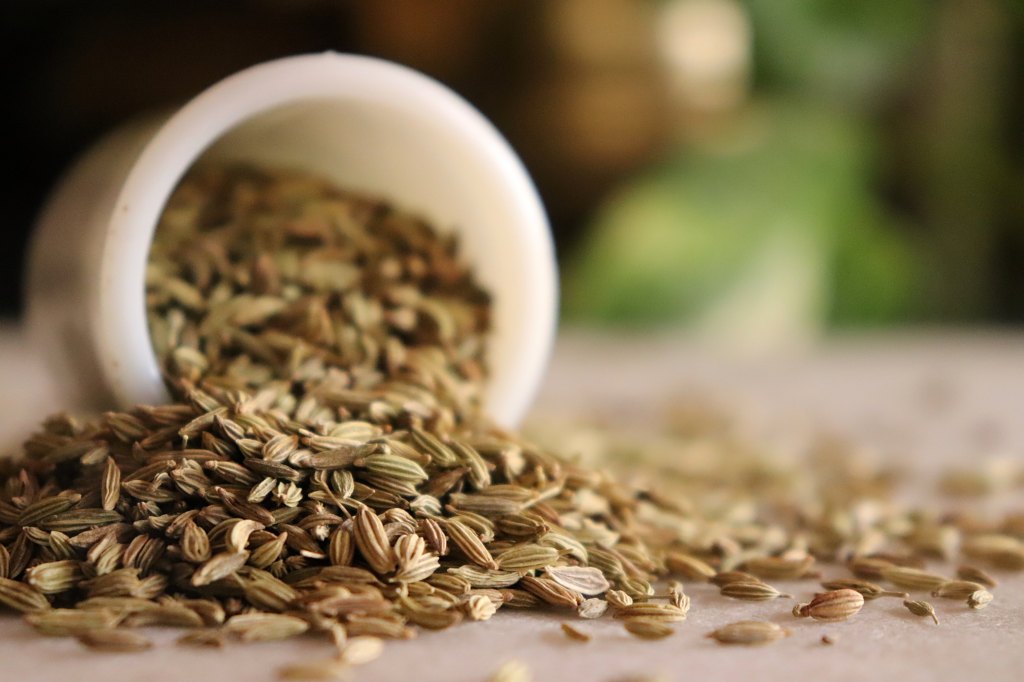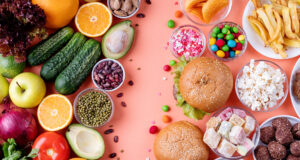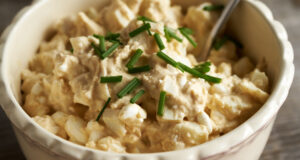Often bothered by painful puffiness around your abdomen? A 2023 study published in the journal Gastroenterology estimates that one in four women feel bloated at least once a week. That’s a problem in more ways than one since the study also found that folks who experienced frequent bloating reported more depression and anxiety than their bloat-free counterparts. The good news? There are anti-bloating foods that help tame stomach distension quickly and naturally. Read on to see what our experts recommend.
What causes stomach bloating?
Abdominal distension can be caused by everything from occasional overindulgence to food sensitivities, high-salt diets, carbonated beverages and conditions such as irritable bowel syndrome (IBS).
It typically manifests as excess gas in the abdominal tract, which makes your stomach feel full and tight. That said, bloating can also be due to constipation or excess water retention. Whatever the culprit, adding more anti-bloating foods to your diet can help.
The 7 best anti-bloating foods
Ready to de-puff naturally? Savoring these anti-bloating foods eases discomfort without the need for over-the-counter meds. And if you make them part of your regular diet, you can also ward off future bouts of puffiness.
How often do you feel bloated?
Sweet potatoes
Sweet potatoes are jam-packed with potassium, a mineral that counterbalances your sodium levels. “Most people ingest more sodium than potassium, causing an imbalance that increases tissue bloating, including abdominal bloating,” explains Michelle Schoffro Cook, PhD, author of 60 Seconds to Slim.
Indeed, an American Journal of Gastroenterology study found that diets high in sodium significantly increased bloating risk. Fortunately, a study in the American Journal of Kidney Disease reveals that boosting your potassium intake flushes excess sodium and fluids from the body. This not only reduces bloating: “As a bonus, it helps reduce swelling elsewhere in the body and balance blood pressure,” Schoffro Cook notes.
Bananas are another classic potassium source, but Schoffro Cook says they’re high in fructose, which can aggravate bloating for many women. That’s why she recommends low-fructose sources of potassium, such as sweet potatoes, avocados, nuts and leafy greens such as arugula and beet greens.
Papaya

“Papaya is a great source of the enzyme papain, which breaks down protein to aid digestion and reduce bloating,” Schoffro Cook explains. To get the benefits, she advises eating raw papaya, since beneficial enzymes in the fruit are destroyed by heat.
Other enzyme-rich foods to consider: mangoes, which are high in amylase, an enzyme that alleviates bloating by enhancing the digestion of starches; and pineapples, which are high in the protein-digesting enzyme bromelain. But like bananas, pineapples contain high levels of fructose, so she cautions that they may aggravate bloating in some women.
Flaxseeds
The rich supply of fiber in flaxseeds combats the constipation that causes bloating, according to a study in the journal Nutrients. And “flaxseeds’ fiber escorts toxins that can cause bloating out of the digestive system,” adds Ann Louise Gittleman, PhD, author of Radical Longevity. She recommends adding 1 to 2 Tbs. of the seeds to smoothies daily.
Schoffro Cook also suggests enjoying eating foods high in fiber such as chia seeds, pumpkin seeds, sunflower seeds and almonds. Aim for two servings at each meal per day, and be sure to stay hydrated by drinking plenty of water while eating more fiber, too. A study in the journal Hepatogastroenterology found that drinking about eight and a half glasses of H2O daily eased constipation by enhancing the movement of fiber through the gastrointestinal (GI) tract.
Tip: Upping your fiber too quickly can increase gas and bloating. To combat this, Schoffro Cook advises increasing your intake of fiber-rich fare by one serving every few days.
Turmeric
The curcumin that gives turmeric its golden color boosts the production of bile, a fluid produced by the gallbladder, by 62 percent, according to a World Journal of Gastroenterology study. That’s a boon for women who experience gas and bloating since bile enhances the digestion of fat. Plus, Gittleman says that bile acts as a sponge to soak up bloat-triggering toxins and usher them out of the digestive tract.
Schoffro Cook recommends enjoying turmeric-rich curries and adding turmeric to soups whenever possible. Tip: When cooking with turmeric, add a pinch of black pepper. A study in the journal Planta Medica suggests a black pepper compound known as piperine can increase the absorption of curcumin by 154 percent.
Ginger
Another spicy way to prevent bloating and improve digestion: Add chopped, fresh ginger to your meals or drink ginger tea on a regular basis. “Ginger not only speeds the movement of food through the digestive tract, but it also reduces inflammation in the gut at the same time,” Schoffro Cook notes. “It’s a powerful natural remedy for bloating and gut health.”
Fennel

Fennel seeds are tried-and-true anti-bloating food: In an American Journal of Gastroenterology study, chewing fennel seeds after meals significantly eased bloating and abdominal pain in IBS sufferers within two weeks. “Fennel contains several healing compounds, including anethole, which reduces gas and inflammation in the gut while relaxing the smooth muscles in the intestines to allow contents to pass through more readily,” Schoffro Cook explains.
Simply chew 1 tsp. of the seeds after meals to get these perks. Or you can brew fennel tea by steeping 1 tsp. of seeds in a cup of boiled water for 10-15 minutes. “Fennel seeds make a delightfully sweet, licorice-flavored tea that tastes so good you’ll forget it has medicinal benefits,” she adds.
Lemon juice
“Adding fresh lemon juice to your diet can help ease bloating in a variety of ways,” says Schoffro Cook, who notes that natural acids in the juice enhance digestion. Lemon juice also has a diuretic action that helps flush excess fluids from the body, per a study in the journal Nutrients.
To tap into the anti-bloat benefits, add the juice of half a lemon to 8 oz. of water and sip one to two times daily. Prefer limes over lemons? According to Schoffro Cook, limes and their juice offer the same health benefits for women who experience bloating.
Anti-bloat tips to maximize these foods’ benefits
Drinking plenty of water is essential when increasing your intake of fiber-rich foods like flaxseeds and leafy greens as it helps fiber move smoothly through your digestive system, preventing constipation and further reducing bloating.
It’s also a good idea to skip carbonated drinks while incorporating anti-bloating foods into your diet. The bubbles in fizzy beverages can trap gas in your digestive tract, counteracting the de-puffing benefits of these bloat-busting foods. Staying hydrated and avoiding carbonation work together to optimize digestion and keep your belly feeling its best.
Which anti-bloating foods work best for you? Share your tips in the comments below!
This content is not a substitute for professional medical advice or diagnosis. Always consult your physician before pursuing any treatment plan.




